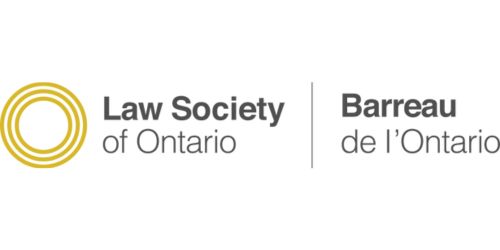Expertise in Psychological Injury Law
Expertise You Can Trust, Results You Deserve



Psychological Injury Expertise
In Ontario, the legal system recognizes that injuries extend beyond the physical aspect to encompass the profound impact of psychological injuries. These injuries, often stemming from traumatic events, can significantly affect an individual’s cognitive functioning, emotional well-being, and overall quality of life.
What Constitutes a Psychological Injury in Ontario?
A psychological injury in Ontario is a mental health condition that has a substantial impact on an individual’s cognitive functions and ability to participate in daily activities. These injuries can manifest in various forms, including Post-Traumatic Stress Disorder (PTSD), depression, and anxiety disorders (including panic disorder, phobias, social anxiety, and generalized anxiety). Other potential psychological injuries include somatic symptom disorder, suicidal thoughts, substance abuse disorder, and psychosis.
“Psychological injuries often resemble an acute injury that, left untreated, evolves into a chronic condition, profoundly altering a person’s life forever. The lasting effects can impair cognitive function, disrupt daily activities, and result in long-term damages that affect every aspect of a victim’s well-being. In personal injury cases, these damages must be recognized and compensated accordingly.”
— Adam Little, Partner at Oatley Vigmond
Symptoms of a psychological injury can significantly impair a person’s ability to work, maintain relationships, and engage in everyday activities. They can present both mentally and physically. These may include:
- Persistent feelings of sadness, anxiety, and emptiness
- Irritability, restlessness, frustration, and drastic mood changes
- Loss of interest in normal activities
- Lack of energy and extreme fatigue
- Sleep disturbances (insomnia)
- Changes in weight or appetite
- Feelings of worthlessness and guilt
- Difficulty focusing, making decisions, and remembering
- Persistent headaches, back pain, and digestive issues that don’t improve with treatment
- Suicidal thoughts or attempts
- Heightened fear response
- Muscle tension, aches, and pains
- Being easily startled
- Shame and self-blame
- Disorientation and light-headedness
- Denial or shock
- Feeling numb or disconnected
- Withdrawal from friends, family, and social gatherings
- Recoiling from touch
- Irregular heartbeat
Causes of Psychological Injuries
- Motor vehicle collisions, slips and falls on another’s property, bicycle accidents, pedestrian accidents, and other sudden, violent events causing physical trauma can also lead to significant emotional and mental distress, resulting in psychological injuries.
- Observing traumatic events can also trigger psychological injuries.
- The trauma of a dog attack can lead to lasting psychological injuries.
- Sexual abuse and assault are devastating acts that often result in severe psychological injuries, including PTSD.
- The sudden and traumatic loss of a loved one can result in profound psychological injuries for surviving family members.
- Injuries caused by defective products can also lead to emotional distress and psychological injuries.
- The ongoing struggle with chronic pain or the limitations imposed by physical injuries can also contribute to the development of psychological injuries like depression and anxiety.
Key Legal Principles and Landmark Court Cases
- Saadati v. Moorhead (2017 SCC 28): This Supreme Court of Canada case is the leading authority on compensation for psychological injuries. The court rejected the notion that a recognized psychiatric illness is a necessary precondition to recover damages for mental injury. Instead, it emphasized that the focus should be on the functional impact of the mental injury on the claimant’s life. The court outlined several factors for determining whether a plaintiff has suffered a mental injury, including the duration of impairments, the impact of cognitive impairment on daily activities, and the psychological treatments pursued and their effects.
The Saadati v. Moorhead ruling established that while medical expert evidence can be valuable, it is not essential for legally proving a psychological injury. This decision is a significant step forward in recognizing psychological injuries even without a formal psychiatric diagnosis.
- Mustapha v. Culligan of Canada Ltd. (2008 SCC 27): To recover compensation for mental injury, this case established that the injury must be severe, prolonged, and exceed everyday worries or fears. The law does not recognize mere emotional distress, such as anxiety or agitation, as a true injury.
- Bothwell v. London Health Sciences Centre (2023 ONCA 323): The Ontario Court of Appeal held that feelings of persistent sadness, anger, or frustration alone do not qualify as a compensable mental injury. While acknowledging that expert medical evidence is not always necessary, the court stressed that claimants who do not provide evidence of impairment to cognitive functioning, interference with daily activities, and treatment run a significant risk of failing to prove a compensable psychological injury. The court found that persistent feelings of frustration and anger alone did not meet the threshold of a compensable mental injury in this specific case, highlighting the importance of demonstrating the functional impact of the psychological distress. This case serves as a reminder of the evidentiary burden claimants face in psychological injury claims.
Evidence in Psychological Injury Claims
While a formal psychiatric diagnosis is no longer strictly required, providing compelling evidence of the injury’s impact is essential. This evidence may include:
- Reports and testimony from psychiatrists, psychologists, therapists, and other mental health professionals are crucial in documenting the nature and severity of the psychological injury, its impact on functioning, and the recommended treatment. A psychiatric injury lawyer frequently collaborates with these experts to strengthen the case.
- Evidence from family members, friends, and colleagues can provide valuable insight into the changes in the claimant’s behaviour, mood, and ability to function before and after the incident.
- Keeping a detailed journal documenting the emotional and psychological impact of the event, including symptoms, sleep patterns, and limitations in daily activities, can serve as important evidence.
- Documentation of time off work, changes in job performance, or termination of employment due to psychological injury can demonstrate its impact on earning capacity.
- Records of therapy sessions, prescriptions, and other forms of treatment sought for the psychological injury are vital in showing the seriousness of the condition and the efforts made to address it.
Our lawyers with expertise in psychological injury will guide you in gathering and presenting the necessary evidence to support your claim effectively.
Seeking Compensation for Psychological Injuries in Ontario
If you have suffered a psychological injury due to someone else’s negligence, you may be entitled to pursue a civil claim for damages. Potential compensation can include:
- General Damages: Compensation for pain and suffering caused by the psychological injury and your resulting loss of enjoyment of life.
- Out-of-Pocket Expenses: Reimbursement for expenses incurred as a result of the psychological injury, such as the costs of psychological counselling, therapy, medication, and other related medical expenses.
Future Care: The cost of medical treatment you will require for the rest of your life due to your psychological injury.
- Loss of Income: Compensation for past and future lost earnings if the psychological injury has affected your ability to work.
- Loss of Competitive Advantage: If your ability to advance in your career has been impaired by the psychological injury.
- Other Damages: Depending on the specific circumstances of the case.
A skilled psychological injury lawyer can assess the full extent of your losses and help you pursue the compensation you deserve.
The Role of a Psychological Injury Lawyer
Navigating the legal complexities of a psychological injury claim can be daunting, especially while dealing with the emotional and mental aftermath of a traumatic event. Hiring a lawyer with expertise in psychological injury can provide invaluable assistance. A lawyer can:
- Explain your rights and options based on the specific details of your situation.
- Gather the necessary evidence to build a strong case, including medical records, witness statements, and other relevant documentation.
- Collaborate with psychiatrists, psychologists, and other medical professionals to obtain the necessary expert opinions and reports to support your claim. A psychiatric injury lawyer will have a network of trusted medical experts.
- Deal with insurance adjusters on your behalf to protect your rights and pursue a fair settlement. Insurance companies may attempt to downplay or deny claims for “invisible injuries”.
- If a fair settlement cannot be reached through negotiation, your lawyer can initiate a lawsuit and represent you in court.
- Understand the sensitive nature of psychological injury claims and offer empathetic and supportive guidance throughout the legal process.
If you are struggling with the aftermath of a traumatic event and believe you have suffered a psychological injury due to someone else’s negligence, seek legal counsel from a qualified psychological injury lawyer who can step in to protect your rights and pursue the compensation needed for your recovery. We offer free initial consultations.
Limitation Periods
There are limitation periods for filing personal injury claims in Ontario, including those involving psychological injuries. Generally, you have two years from the date you knew or ought to have known you had a claim to commence a lawsuit. Failing to file within this timeframe can bar you from pursuing compensation. Therefore, it is essential to consult with a PTSD legal counsel or
another experienced psychological injury lawyer as soon as possible to understand the applicable limitation period in your case and ensure your claim is filed in a timely manner. Exceptions to the limitation period may apply in certain circumstances, especially where the psychological impact delays your ability to recognize the harm. Still, it is always best to seek legal advice promptly.
Frequent Asked Questions
You must provide medical records, psychological evaluations, and witness testimony linking your condition to the event. Consistent treatment history and documentation of symptoms before and after the event can also help establish causation.
Challenges include proving the severity of the injury, demonstrating its impact on daily life, and overcoming skepticism from insurance companies or courts. Without a formal diagnosis or expert testimony, claims can be difficult to validate.
Psychological injuries can cause emotional distress, social withdrawal, difficulty maintaining employment, and strained personal relationships. They may lead to anxiety, depression, and an inability to engage in daily activities or enjoy life as before.
Common treatments include cognitive-behavioural therapy (CBT), medication for anxiety or depression, trauma-focused therapy, EMDR, and counselling. Support groups and lifestyle changes may also aid recovery.
Insurance may cover therapy, medication, and lost wages, but companies often challenge claims, requiring substantial proof of the injury’s severity and its connection to the incident. Negotiation or legal action may be necessary to secure fair compensation.
Saadati v. Moorhead (2017 SCC 28) established that a recognized psychiatric diagnosis is not required for compensation. Mustapha v. Culligan of Canada Ltd. (2008 SCC 27) clarified that psychological injuries must be serious and prolonged, exceeding ordinary stress or anxiety.
A compensable mental injury must be serious and prolonged and significantly impact cognitive functioning or daily activities. It must go beyond transient distress and be supported by evidence of functional impairment.
The court considers the extent of impairment in cognitive functions, the impact on daily life, medical records, witness testimony, and whether the claimant sought treatment. Persistent emotional distress alone may not be sufficient for compensation.
While expert evidence is not legally required, its absence weakens a claim. Courts may dismiss cases if there is no professional diagnosis or medical proof of functional impairment.
The Ontario Court of Appeal ruled that persistent frustration and anger were not sufficient to establish a compensable psychological injury. The claimant failed to provide evidence of impairment to cognitive functions, daily activities, or treatment efforts.
Choice of Firm Matters
If you’ve been seriously injured in an accident, the firm you select is a life-changing decision. The outcome of your claim depends on the quality of your representation. The best results are won by the most experienced lawyers, who know the case law and the best strategy to take thanks to their proven trial experience.
Speak with our lawyers to explore what compensation you may be eligible to claim
If you need a personal injury lawyer, you have likely been injured in a serious accident. We understand how difficult this period can be for you—and we want to help. Our firm consists of some of Canada’s most experienced and most respected personal injury lawyers. Oatley Vigmond’s team will help you focus on your recovery while we prepare your case to get you the compensation you deserve. We have achieved some of the largest decisions and settlements in the history of Ontario personal injury law.
Personal injury cases are complex and you need to ensure that you are properly represented after a catastrophic injury or impairment. We have the team and the expertise to offer you the best representation possible – period. As Ontario’s Personal Injury Law Firm, we serve clients across Ontario, with offices in Barrie, Toronto, Hamilton, Sudbury and North Bay.
Contact anytime to put the power of the Oatley Vigmond team on your side.
Certifications

Law Society of Ontario – Certified Litigation Specialists
Oately Vigmod proudly features lawyers who are Certified Litigation Specialists by the Law Society of Ontario (LSO). This certification is a prestigious designation that recognizes lawyers with advanced expertise in specific areas of law, such as civil litigation, criminal law, or family law. Achieving this status requires significant experience, advanced knowledge, and a commitment to maintaining high professional standards. The certification assures clients that these lawyers have demonstrated excellence in their field and are recognized by their peers and the legal regulatory body for their specialization.

The Canadian Legal Lexpert Directory
The Canadian Legal Lexpert Directory consistently recognizes Oatley Vigmond’s lawyers for their expertise in personal injury law. In 2024, several of the firm’s attorneys were listed in this prestigious directory. James L. Vigmond, with over 35 years of experience, received the highest recognition as “Most Frequently Recommended” in personal injury litigation. This recognition highlights Oatley Vigmond’s specialization in representing individuals with serious injuries, including spinal cord and traumatic brain injuries.

Best Lawyers
Oatley Vigmond has consistently garnered recognition in the Best Lawyers listings, a prestigious honor in the legal profession. This accolade, based on peer evaluations, reflects the high regard and trust the firm’s attorneys have earned within the legal community. In 2024, eight of the firm’s Partners were included in The Best Lawyers in Canada edition. Notably, James Vigmond was named the 2025 “Lawyer of the Year” for Personal Injury Litigation in the Toronto area.

Canadian Lawyer Magazine
Oatley Vigmond has received recognition in Canadian Lawyer magazine, further solidifying its reputation in the legal community. This feature highlights our expertise and standing in the field of personal injury law. Canadian Lawyer is a respected publication that covers various aspects of the legal profession in Canada, including notable firms and practitioners. The inclusion of Oatley Vigmond lawyers in this magazine underscores our professional achievements and contributions to the field. Such recognition validates our commitment to excellence.
Catastrophic Injuries Verdicts and Settlements
The lawyers of Oatley Vigmond established our reputations in the courtroom, where we distinguish ourselves by preparing our cases with the best experts available and delivering them in a thoughtful manner designed to resonate with judges and juries alike. Our efforts have established record-setting payouts for our clients.
That’s because our reputation as successful trial lawyers has enhanced our ability to successfully negotiate large settlements for our clients, with whom we develop deep relationships. But don’t just take our word for it: Below, meet some of our clients, and hear about the results of our work.
Past results are not necessarily indicative of future results. The amount recovered and other litigation outcomes will vary according to the facts of individual cases. In addition, certain details of personal injury lawsuit verdicts and settlements are kept confidential at the request of the plaintiffs.
$24 Million Settlement
MOTOR VEHICLE ACCIDENTS
SPINAL CORD INJURY
$12.5 Million Settlement
BRAIN INJURY
MOTOR VEHICLE ACCIDENTS
$12 Million Settlement
BRAIN INJURY
MOTOR VEHICLE ACCIDENTS
Practice Areas
We are consistently ranked as one of Canada’s top personal injury law firms. Whether you have experienced a brain injury, a spinal cord injury, a fracture or orthopaedic trauma, or other personal injuries, we have the expertise to offer you the best representation possible — period.
Oatley Vigmond’s extensive experience positions us as one of the leading personal injury firms in Ontario, specializing in catastrophic injury claims. Each year, numerous catastrophic incidents in Ontario result in life-altering injuries that leave victims and their families facing immense challenges. Our expertise in handling these complex cases means that you can trust our skilled team to guide you through the legal intricacies with compassion and proficiency. From filing insurance claims to negotiating settlements and collecting fees only upon a successful outcome, Oatley Vigmond alleviates the stress so you can focus on healing. Let our experts manage all the legal aspects, ensuring that you receive the compensation you deserve.
Understanding the profound impact of catastrophic injuries, Oatley Vigmond provides unparalleled legal representation. With over 30 years of experience in catastrophic injury claims, our personal injury lawyers are equipped to handle the most challenging cases. We meticulously gather crucial evidence, promptly complete all necessary paperwork, and negotiate assertively to secure your rights. If you or a loved one has suffered a catastrophic injury, call us at 1-888-662-2481 for a free consultation.














